Prof. Fynn connected with Prof. Goutam whilst visiting IIT-KGP
Detecting Coronary Artery Disease Early, Safely, and Globally
Welcome to Ticking Heart: revolutionising cardiovascular health with affordable, safe, non-invasive technology for early detection of Coronary Artery Disease, empowering global healthcare providers to save lives.
Our Vest uses inbuilt proprietary multi-acoustic sensors to capture heart auscultation signals, which then undergo analysis through signal-processing and machine learning algorithms, providing early indication of CVD within a few minutes to the Smart Device.
Early detection of coronary artery disease in under 1 minute.
Using safe, non-invasive sound sensors.
No specialist
interpretation
Meeting an unmet need medical pre-screening: Low capital and transaction cost – high scalability – wider reach – improved patient outcomes – non-disruptive to current clinal protocols – prompt an accuracy with results produced within 1 min
Hospitals
Hospitals
Medical Clinics
Public and Primary Healthcare
Corporate
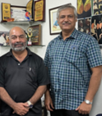
Prof. Fynn connected with Prof. Goutam whilst visiting IIT-KGP

Proof of concept results published
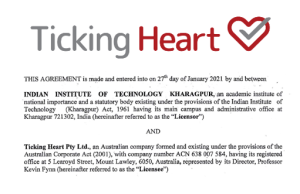
Ticking heart is established. Licence Agreement technology with IIT-KGP. TH
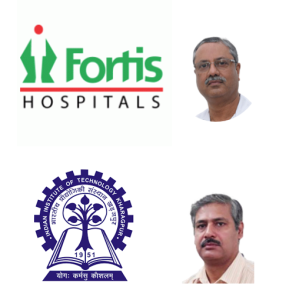
The beginning- Dr. Mandana (Fortis) presented to IIT-KGP and connected with Prof. Goutam Saha to investigate detecting CAD using digital stethoscopes

Ticking heart team designs propriety vest and sensors

Proof of Vest clinical study (CAD)

clinical study (Valvular)

TH Board expands
First Revenue in Thailand Private Hospital
Target ISO Accreditation
Commence Commercial Product design phase.

Commence Clinical Trials at Bangkok Hospital Thailand

Present technology to World largest Cardiology Conference
MOU with CCDC for Indian Public Hospital Trial
Coronary Artery Disease
(PCG sensors)
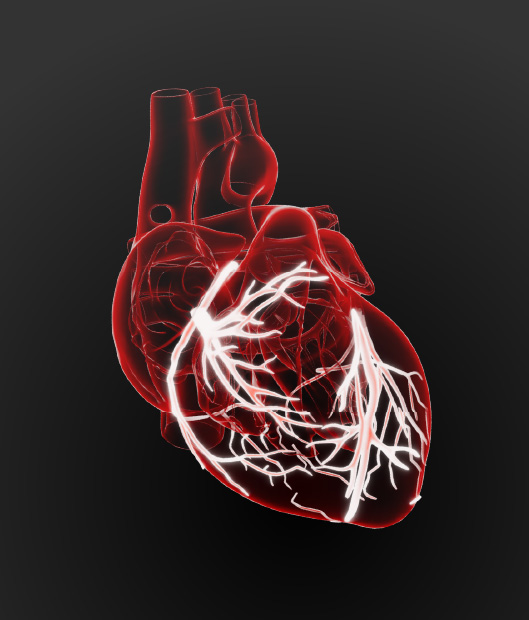
Valvular Disorders
(PCG sensors)
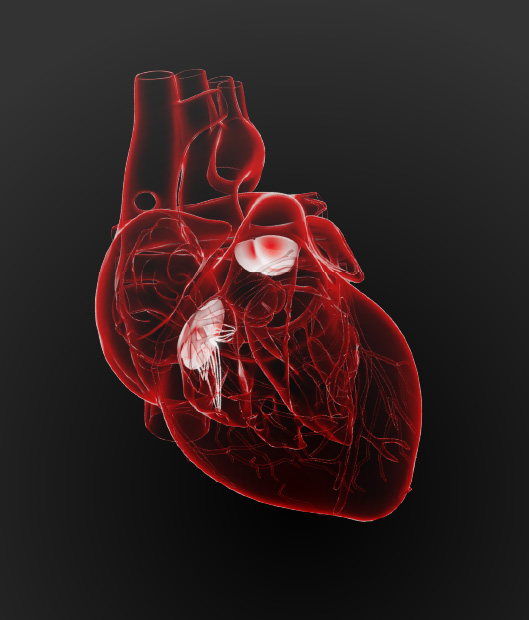
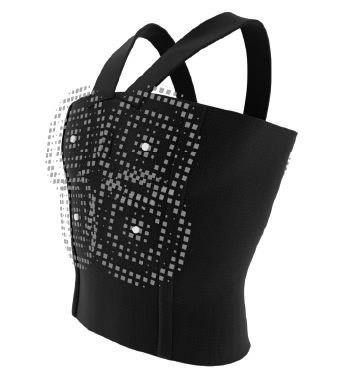
Arrhythmia
(ECG sensors)
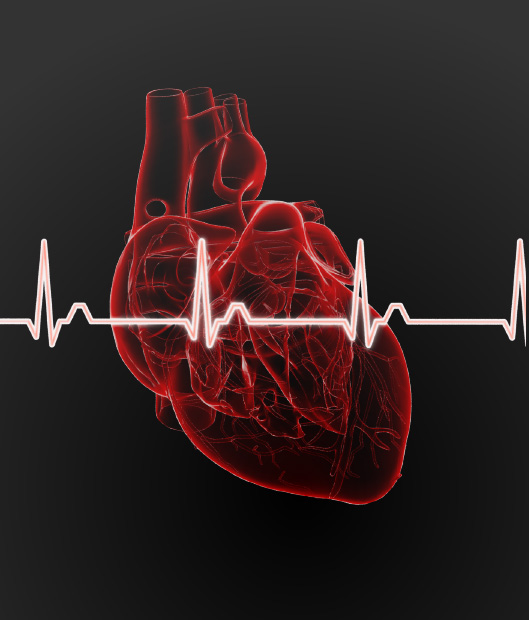
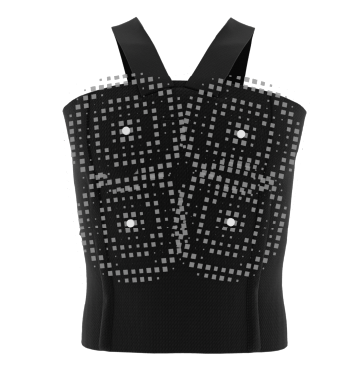
Pulmonary Diseases
(PCG sensors)
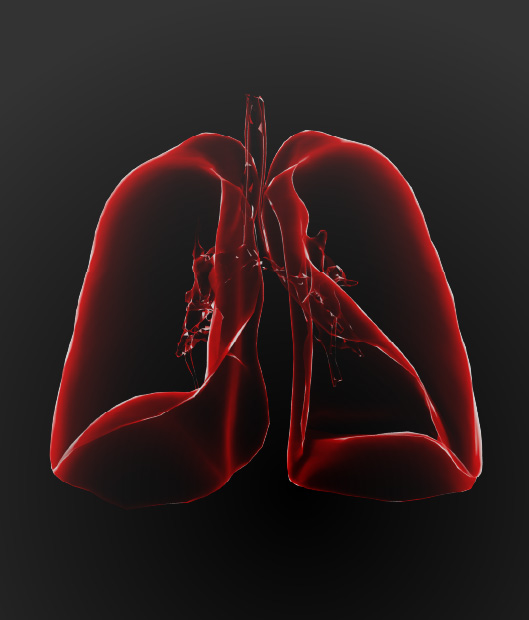
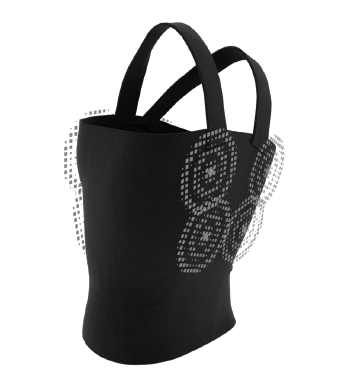
Heart Failure
(Ultrasound sensors)
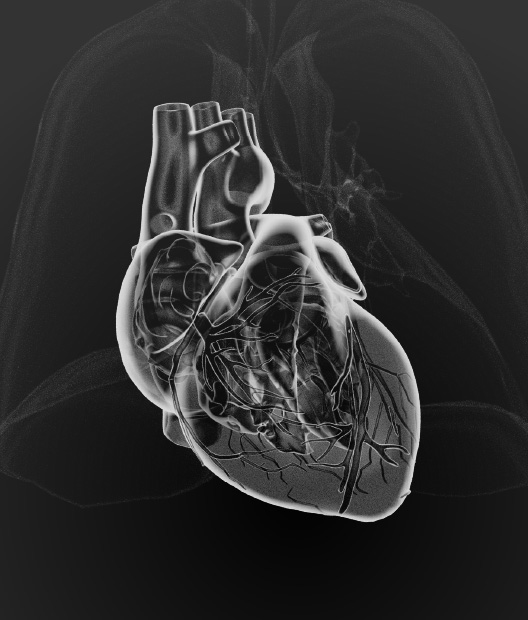

Heart Attack Myocardial Infarction
(Transdermal sensors)


Kevin has a track record of start-ups, commercialising novel deep technology into sustainable companies. He has a solid blended background

David is a highly experienced Executive and Non-Executive Director with extensive skills in all aspects of financial and commercial management

Co-inventor of PainChek (ASX Listed), AI enable medical devices in the form of mobile applications for the assessment of pain

Ameet Babbar brings a wealth of international experience, with a track record of establishing and managing successful businesses in Oman,

Chief Operations Officer (Nuheara Ltd). As one of the original founders at Nuheara, developed initial prototype products and managed the

Dr John Siliquini ; co-founder of Xelor, TheBuzz, and MobiRoam. He has over 20 years of industry experience, with eight

Professor Teng-Wen Chang is Director of Idea Factory at National Yunlin University of Science and Technology. Prof. Chang is actively

He has over 20 years experience in both industry and academia holding various positions in engineering such as systems engineer,

Jordan has a Bachelor’s degree in Business Information Systems & Logistics and Supply Chain Management, graduate certificate of Supply chain

16 years as experienced software engineer in VoIP industry. Key Skills: extensive knowledge in VoIP technologies (server-side and client-side application

Matthew completed a Double degree in Physics and Electrical Engineering in 2022 and was on the Vice-Chancellor’s merit list. He

Javed Rashid is a skilled Cardiothoracic and Vascular Surgery professional with a strong academic and practical background. He earned his

Dr. Permyos earned his MD from Prince of Songkla University, Thailand, in 1990 and a PhD in clinical studies from

Dr. Mandana is a leading consultant in cardiothoracic and vascular surgery and has performed numerous critical and complex cardiothoracic and

Co-inventor of PainChek (ASX Listed), AI enable medical devices in the form of mobile applications for the assessment of pain

Professor Yue Rong received the B.E. degree from Shanghai Jiao Tong University, Shanghai, China, the Prof. Yue Rong is a
Answer: Coronary Artery Disease (CAD) is a condition where the coronary arteries, which supply blood to the heart muscle, become narrowed or blocked due to the buildup of plaque. This can reduce or block blood flow to the heart, leading to chest pain (angina), shortness of breath, or heart attacks. CAD is one of the leading causes of death worldwide.
Answer: Common risk factors for cardiovascular diseases include high blood pressure, high cholesterol, smoking, diabetes, obesity, physical inactivity, unhealthy diet, excessive alcohol consumption, and a family history of heart disease.
Answer: You can reduce your risk by maintaining a healthy lifestyle, which includes eating a balanced diet, exercising regularly, avoiding smoking, limiting alcohol consumption, managing stress, and keeping your blood pressure, cholesterol, and blood sugar levels within healthy ranges.
Answer: Symptoms of a heart attack can include chest pain or discomfort, shortness of breath, pain or discomfort in the arms, back, neck, jaw, or stomach, cold sweat, nausea, lightheadedness, and fatigue. If you or someone you know is experiencing these symptoms, it’s crucial to seek emergency medical help immediately.
Answer: Early detection of coronary artery disease allows for timely intervention, which can prevent the progression of the disease, reduce the risk of heart attacks, and improve overall heart health. It also enables individuals to make lifestyle changes that can significantly lower their risk of severe cardiovascular events.
Answer: The Ticking Heart vest uses advanced acoustic sensors to detect abnormal sounds in the heart that may indicate blockages in the coronary arteries. This allows for early identification of potential coronary artery disease, even before symptoms appear, facilitating timely medical intervention.
Answer: Yes, the Ticking Heart vest is ideal for regular heart health monitoring. It can be used in various settings, including general practice, preventive health checks, community screenings, and pre-operative assessments in hospitals, making it a versatile tool for ongoing cardiovascular assessment.
Answer: In pre-operative assessments, the Ticking Heart vest helps identify coronary artery blockages that may increase the risk of complications during surgery. By screening patients before surgery, healthcare providers can take necessary precautions or adjust surgical plans to improve patient safety and outcomes.
Answer: The Ticking Heart vest enhances patient outcomes by enabling early detection of coronary artery blockages, reducing the risk of surgical complications, and improving overall heart health management. Early intervention based on the vest’s findings can lead to better surgical results, quicker recovery times, and a lower likelihood of post-operative complications.
Answer: The Ticking Heart vest has demonstrated a medical accuracy greater than 80% in detecting coronary artery blockages. This high level of accuracy makes it a reliable tool for early detection and helps guide further diagnostic and treatment decisions.
Answer: Yes, the Ticking Heart vest is completely safe to use. It is a non-invasive device that does not emit radiation, and it is made from non-toxic, hypoallergenic materials. The vest has undergone rigorous testing to ensure it meets all safety standards for medical devices.
Answer: Ticking Heart is committed to sustainability. We use eco-friendly materials in the production of our vest and implement sustainable manufacturing practices to minimize our environmental impact. Our company is dedicated to reducing waste and conserving resources throughout our production and distribution processes.
Answer: Currently, the Ticking Heart vest is not intended for personal home use. It is designed for use by healthcare professionals in clinical settings, such as hospitals, general practices, and community health centers. However, we are exploring the possibility of adapting the vest for personal use in the future.
Answer: The Ticking Heart vest is unique because it combines ease of use with advanced technology. Unlike other devices that may require complex procedures or specialist training, the vest is designed to be user-friendly and provides quick, accurate results without the need for invasive tests or specialist interpretation.
Answer: The vest is suitable for individuals at risk of coronary artery disease, such as those with a family history of heart disease, high blood pressure, high cholesterol, or diabetes. It’s also ideal for healthcare providers who want to offer routine heart health screenings in their practice, community, or as part of pre-operative assessments in hospitals.
Answer: Yes, your data is safe. Ticking Heart complies with all data privacy regulations set by medical regulatory bodies to ensure the protection of your personal and medical information. We take data security seriously and implement robust measures to safeguard your data at all times.
Answer: The frequency of use depends on your individual risk factors and health status. For those at higher risk of coronary artery disease or undergoing surgery, more frequent screenings may be beneficial. It’s best to consult with your healthcare provider to determine an appropriate screening schedule.
Answer: If the vest detects a potential blockage, it’s important to consult with a healthcare professional immediately. They can conduct further tests, such as an angiogram, to confirm the diagnosis and recommend appropriate treatment.
Answer: The Ticking Heart vest is designed for durability and frequent use. It’s made from high-quality materials that ensure longevity, even with regular use in clinical or community settings.
Answer: While the Ticking Heart vest is primarily designed for adults, it may be used on younger patients under specific circumstances as determined by a healthcare provider. It’s always best to consult with a healthcare professional to ensure the vest is suitable for a particular patient.
Answer: No specialized training is required to use the Ticking Heart vest. It’s designed to be intuitive and user-friendly, making it accessible to healthcare providers, general practitioners, and even community health workers.
ACN: 638 007 584